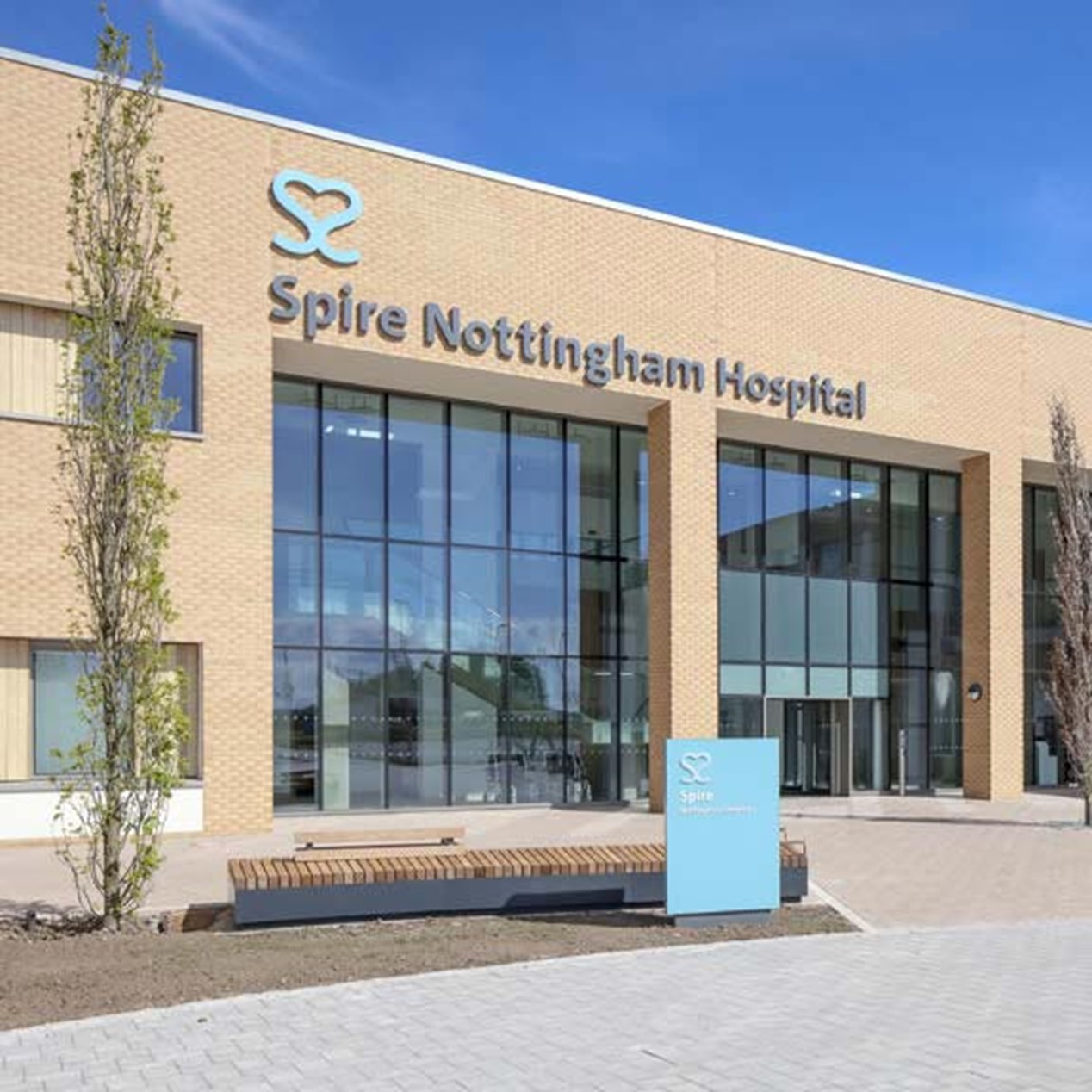Pelvic vein embolisation is a minimally invasive treatment for pelvic congestion syndrome, also known as ovarian vein reflux.
Why you might need it
Pelvic vein embolisation is a minimally invasive treatment for pelvic congestion syndrome, also known as ovarian vein reflux. Pelvic congestion syndrome is a painful condition resulting from varicose veins in the pelvis.
Pelvic congestion syndrome is a painful condition resulting from varicose veins in the pelvis. Pelvic vein embolisation treatment closes off faulty veins so they can no longer enlarge with blood, thus relieving the pain.
Diagnosis of the condition is done through one of several methods including pelvic venography, magnetic resonance imaging (MRI scans) and pelvic and transvaginal ultrasound.
Pelvic vein embolisation may also be used to treat the following conditions:
- Vulval varicose veins
- Vaginal varicose veins
- Leg varicose veins arising from the pelvis
Find a Spire hospital offering this treatment

Who will do it?
Our patients are at the heart of what we do and we want you to be in control of your care. To us, that means you can choose the consultant you want to see, and when you want. They'll be with you every step of the way.
All of our consultants are of the highest calibre and benefit from working in our modern, well-equipped hospitals.
Our consultants have high standards to meet, often holding specialist NHS posts and delivering expertise in complex sub-specialty surgeries. Many of our consultants have international reputations for their research in their specialised field.
Before your treatment
You will have a formal consultation with a healthcare professional. During this time you will be able to explain your medical history, symptoms and raise any concerns that you might have.
We will also discuss with you whether any further diagnostic tests, such as scans or blood tests, are needed. Any additional costs will be discussed before further tests are carried out.
Preparing for your treatment
We've tried to make your experience with us as easy and relaxed as possible.
For more information on visiting hours, our food, what to pack if you're staying with us, parking and all those other important practicalities, please visit our patient information pages.
Our dedicated team will also give you tailored advice to follow in the run up to your visit.
The procedure
Pelvic vein embolisation is usually carried out under a local anaesthetic in the interventional radiology suite or occasionally in the operating theatre. The length of the procedure takes approximately 45-60 minutes.
If the procedure is performed under sedation, the intravenous (IV) sedative will make you feel relaxed and sleepy. You may or may not remain awake, depending on how deeply you are sedated.
Using X-ray imaging your interventional radiologist inserts a catheter through the skin into the vein in the groin or neck and places a catheter into the faulty veins that need treatment. You may feel slight pressure when the catheter is inserted, but no serious discomfort.
When in the correct position, the interventional radiologist will administer a combination of foam sclerotherapy and coils into the vein where it will remain permanently to close off the vein. You may experience a warm feeling during this part.
At the end of the procedure, the catheter will be removed and pressure will be applied to stop any bleeding. The opening in the skin is then covered with a dressing. No sutures are needed.
Your heart rate and blood pressure will be monitored during the procedure.
Aftercare
Most patients experience some mild side effects after pelvic vein embolisation. Pain is the most common side effect and can be controlled with pain relief medication administered either orally or through your IV.
The pelvic vein embolisation procedure is normally a day case procedure, you can expect to stay in bed for six to eight hours after your procedure before you are able to go home.
You should be able to resume your normal activities within a week.
Even after you’ve left hospital, we’re still looking after you every step of the way. After pelvic vein embolisation, typically our consultants may want to see you for a follow up consultation after your procedure to see how you are doing.
It may take between one to three months after pelvic vein embolisation before it is clear whether symptoms have been controlled or eliminated.
On rare occasions, complications following pelvic vein embolisation can occur. If you experience pain or discomfort please call us straight away.
But everybody is different. If you have any questions or concerns, we're here to help.
Why choose Spire?
We are committed to delivering excellent individual care and customer service across our network of hospitals, clinics and specialist care centres around the UK. Our dedicated and highly trained team aim to achieve consistently excellent results. For us it's more than just treating patients, it's about looking after people.
Important to note
The treatment described on this page may be adapted to meet your individual needs, so it's important to follow your healthcare professional's advice and raise any questions that you may have with them.

